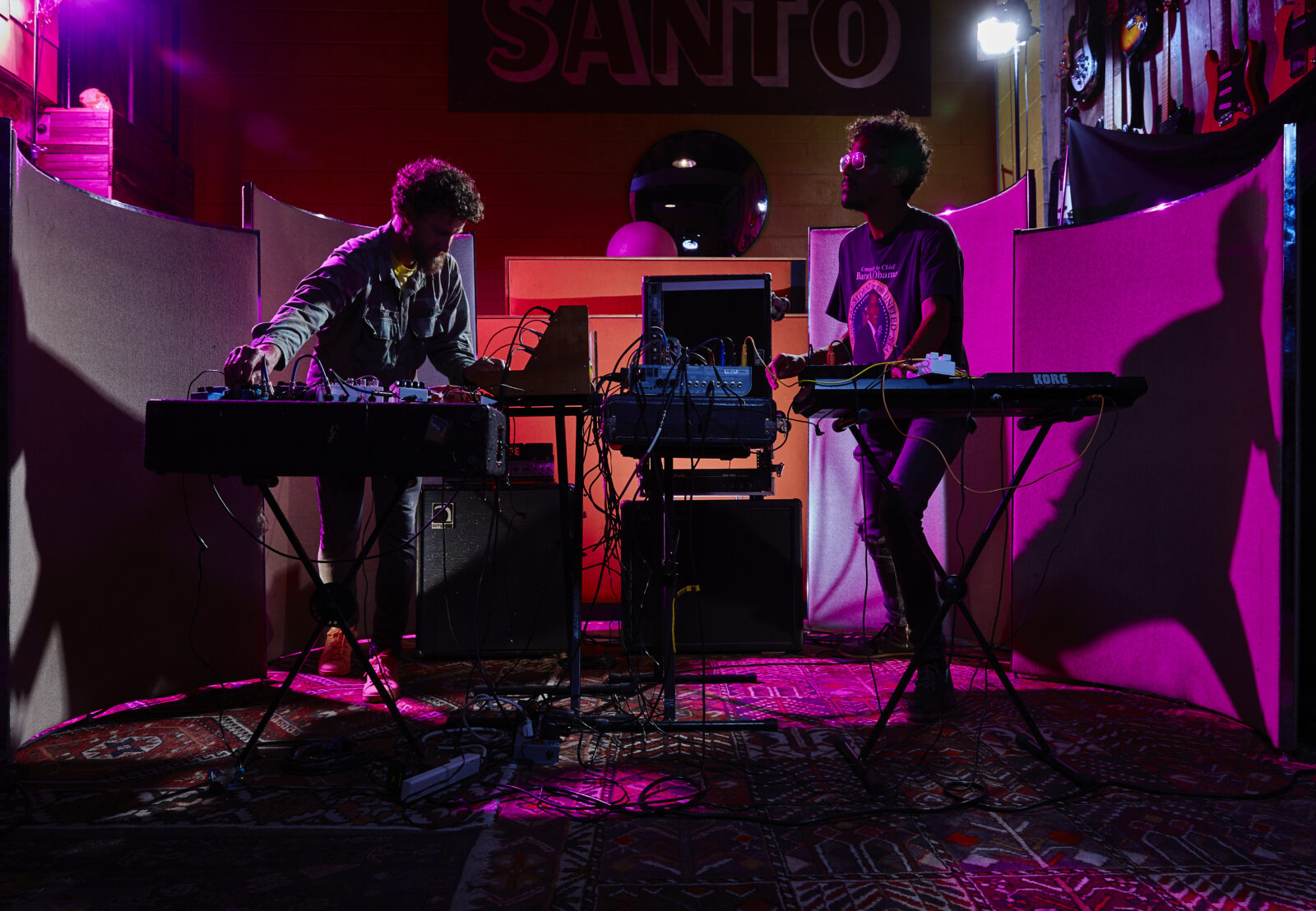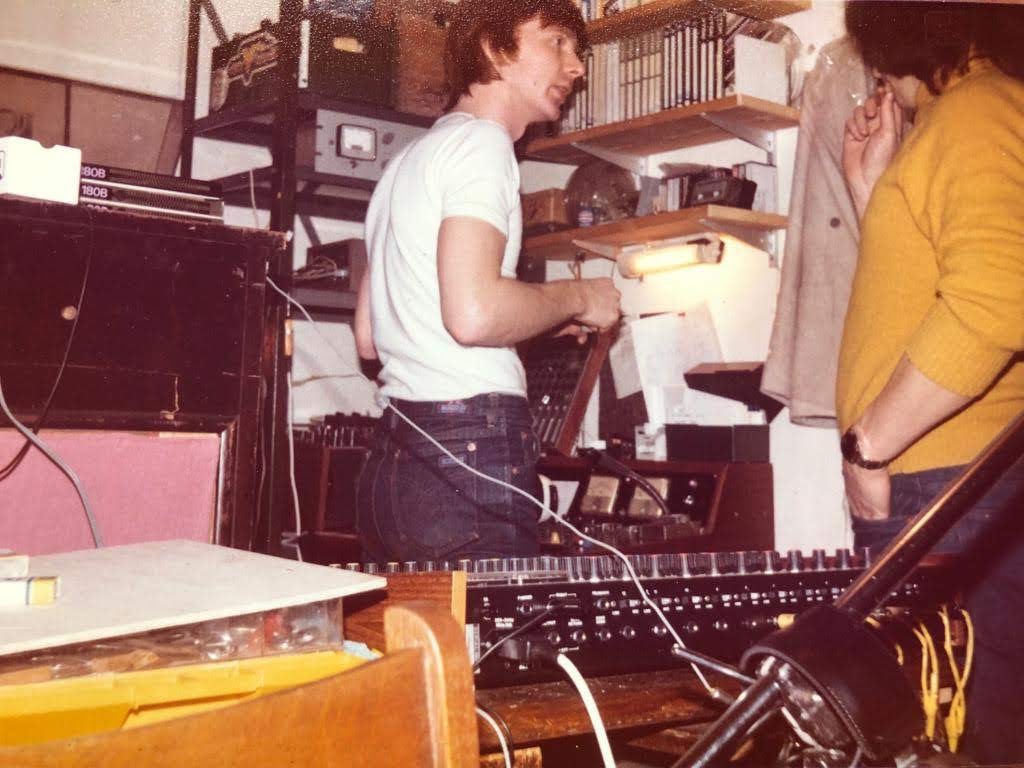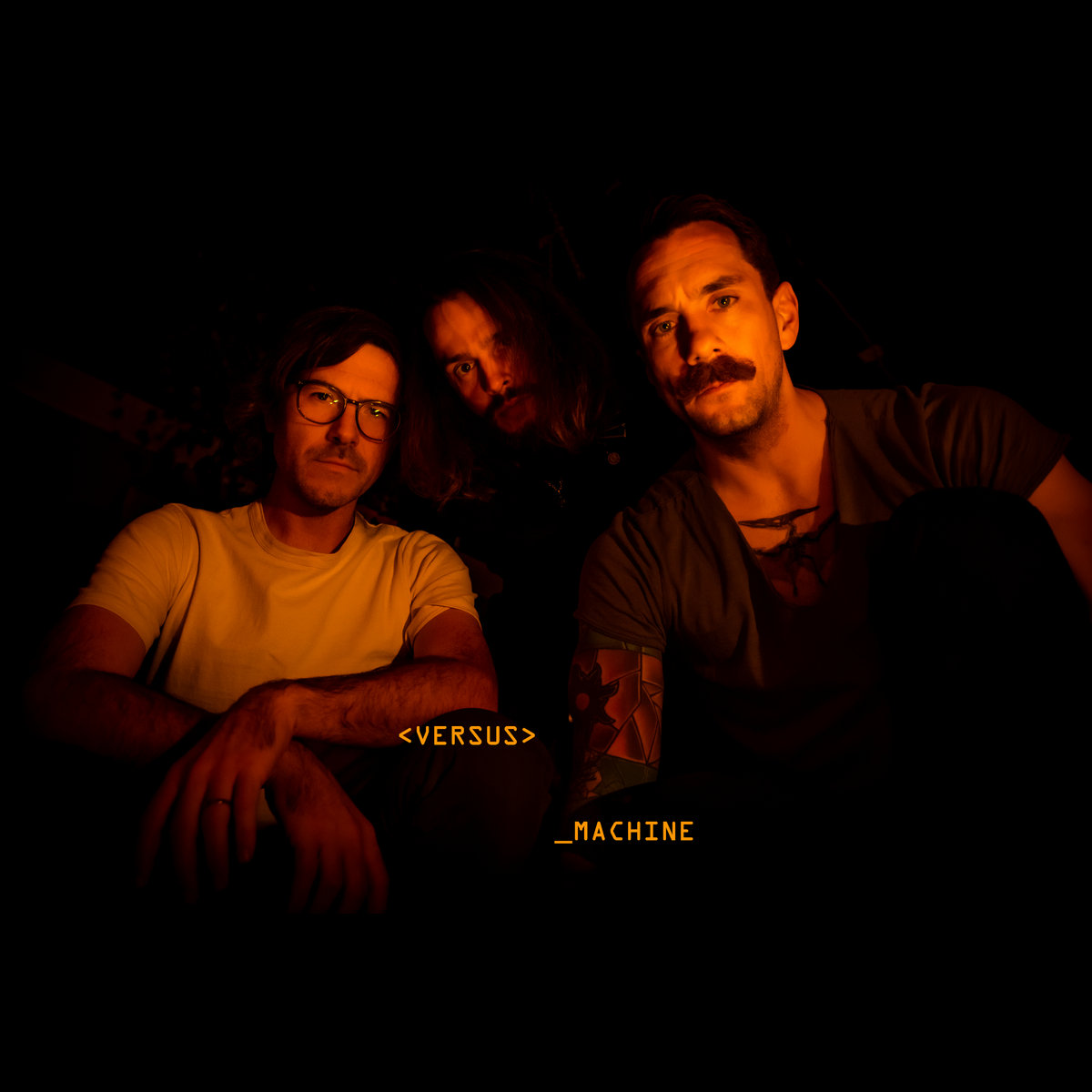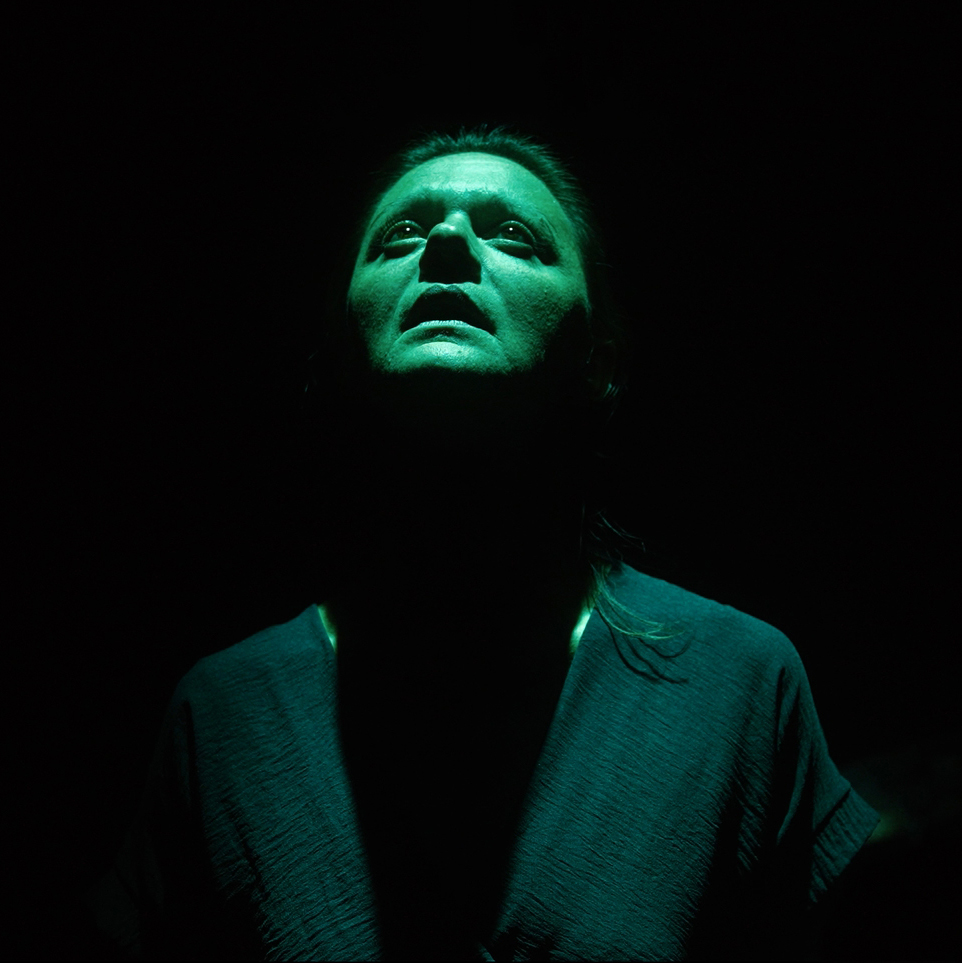Watkins / Peacock | Interview | “Acid Escape”
The new duo of electro-acoustic disciple, Zachary James Watkins and analog-spacesynth master, Ross Peacock conjures a new possibility of tone, rhythm and light.
Influenced by the likes of dub, krautrock and experimental pioneers Cluster, Brian Eno and Scientist, their live improvised blend of psychedelic electronica embraces the fragility of analog and digital hardware systems. Watkins/Peacock engage in vibrant patterns over time with an investment in exploration and exchanges.
Kronos Quartet performed Zachary James Watkins’ original composition ‘Peace Be Till’. In 2017, he composed and performed an hour long score for the 35mm film Black Field, collaborating with acclaimed filmmaker, Paul Clipson. His duo, Black Spirituals, has released records on SIGE/Tapeworm and toured Europe extensively including a six week stint with Earth.
Ross Peacock with his band, Mwahaha, have performed extensively in the U.S. performing a live Boiler Room set following the release of their first full length on Plug Research.
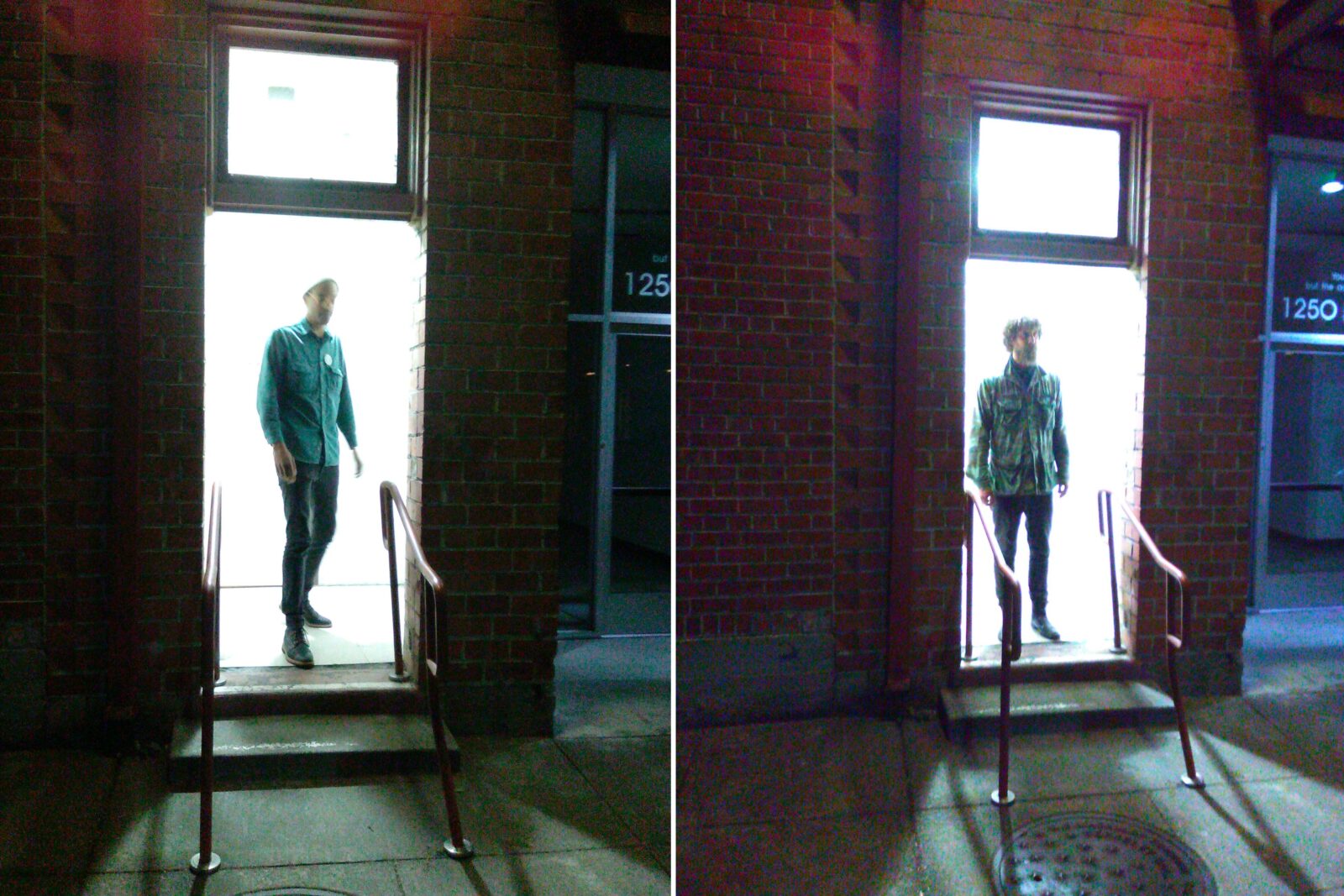
“We record pretty much every note of music that we make”
Would you like to talk a bit about your background? How did you first get interested in music and what are some of the early projects you were part of.
Ross Peacock: I was an athlete and played basketball in college. Music and its rhythms were always part of practicing and developing my basketball skills. As far as creating music, I started a bit on the later side after college … singing was my path into it but soon synthesizers became a passion as well as performing live and touring. I love recording, but for me I love the exchange of energy when performing live. Some other projects I’ve been involved with are Ned, Mwahaha, Clipd Beaks, and Tune-Yards.
Zachary James Watkins: I grew up in Lubbock, Texas in a musical family. Lubbock was home to Buddy Holly and The Crickets, the original Stubbs BBQ which was a famous venue for local artists and musicians that nurtured Terry Allen and Joe Ely, The Flatlanders as well as my parents. At a young age I knew I was interested in sound and would beatbox and create percussion setups using pots and pans. My mother had Aunt Dotty’s old upright piano and at age 7 or so I began studying piano with Marihelen Snow who not only rocked the piano but had a small project studio that centered around the ARP 2600. I was mesmerized to say the least. Early on, Marihelen recognized that I composed music as I would return the next lesson with my own versions of her piano assignments. In my teen years I was introduced to reggae, punk, post punk, hip hop and rave music through the local skateboarding and DIY music scenes. My parents’ record collection was also hugely influential containing all sorts of psychedelic, folk and jazz.
When did you decide that you wanted to start writing and performing your own music? What brought that about for you?
Ross: When I finished college I decided I was going to become a musician after realizing I could sing while singing along to the radio.
Zachary James: Ross’s response is NASTAY! My piano teacher / guru Marihelen Snow and my interest in sound through my supportive family. Cicadas. The 90s spawned a fresh take on DIY music communities and song writing. I loved the creative eccentricity of the local scenes.
How did you two get together and decide to work together?
Ross: We had both lived in Oakland for many years without meeting each other. We were both going through changes in our lives and with musical projects that we had been heavily involved in. Zachary played me some tracks he was working on and I thought I could bring something to the ideas. We got together in the studio and it was clear from that first night there was something there.
Zachary James: I work at Santo Recording in Oakland. I have access to high level gear and a wonderful room. My project Black Spirituals had ended and I was excited to begin afresh. Ross is a best friend now and our relationship has grown stronger through our many late psychedelic nights improvising in the studio.
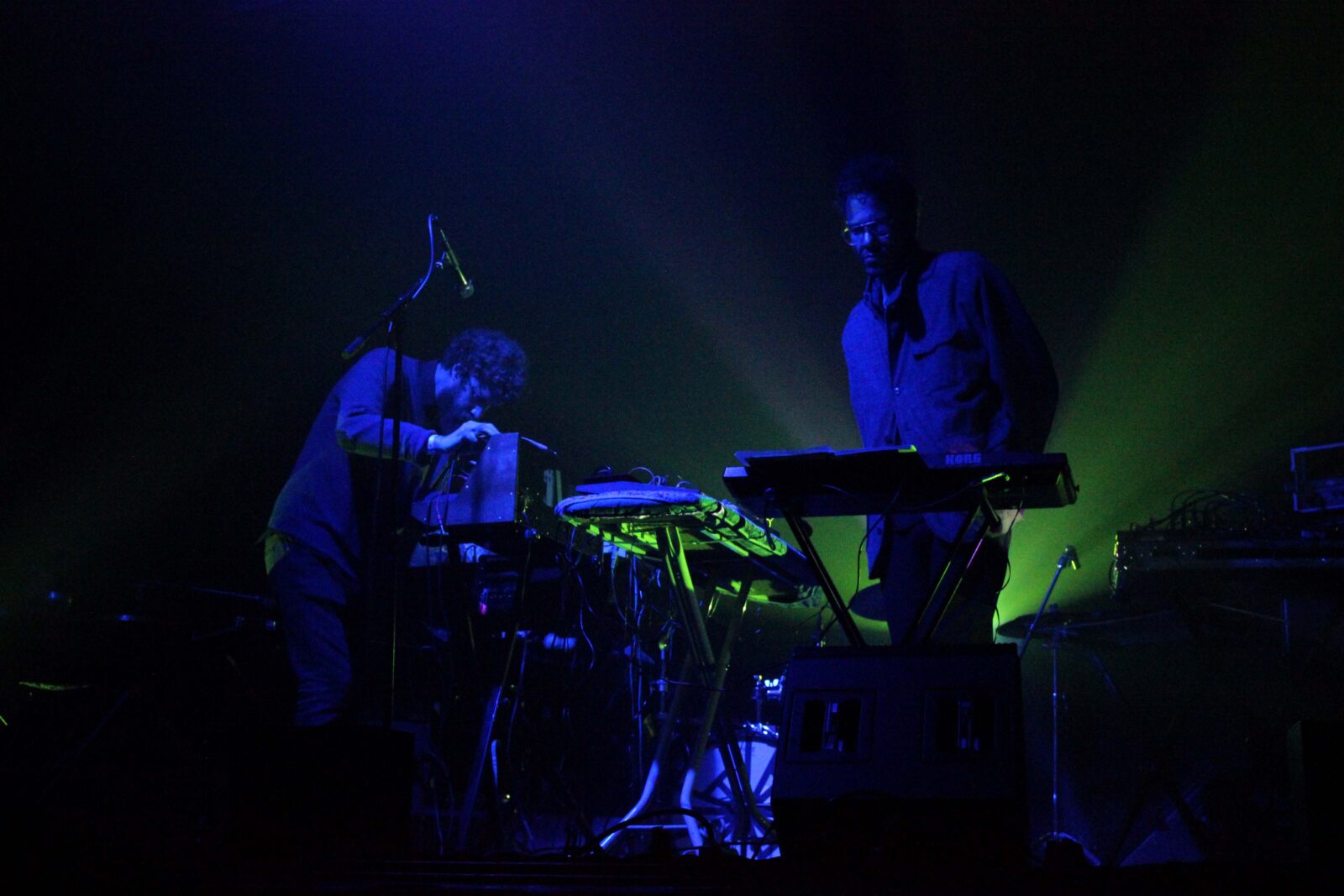
You recently released the third part of ‘Acid Escape’. What’s the concept behind it?
Ross: We record pretty much every note of music that we make. Most of the time without any overdubs and mostly improvised.
Zachary James: Late night psychedelic improvisations through our various instrumental rigs containing analog and digital hardware and fortunately recorded with nice equipment.
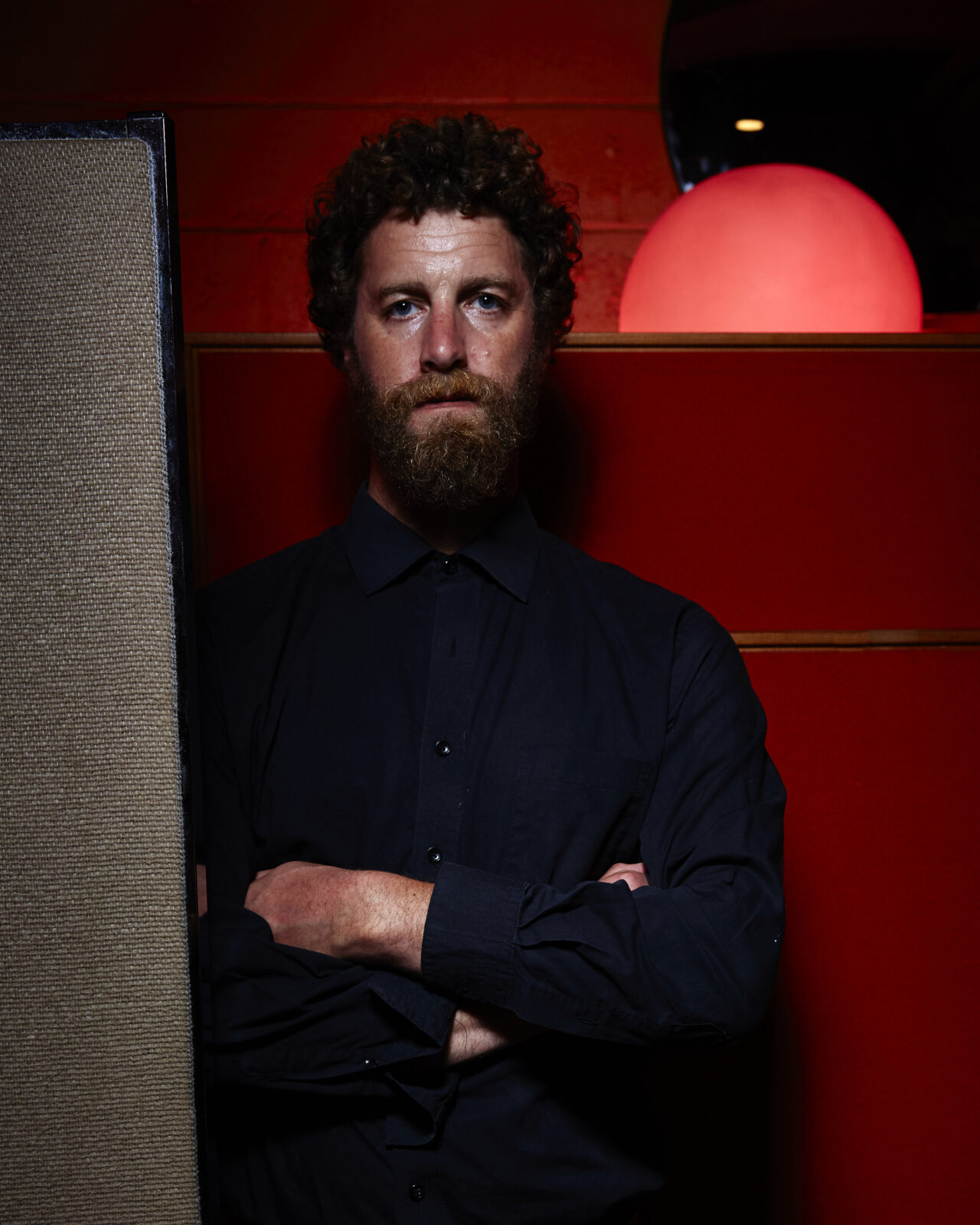
“Our music and collaborations feel healing”
Can you share some further words about how you record it?
Ross: We record it live in the studio. Sometimes in the control room going direct and other times we set up in the live room and record as would perform live.
Zachary James: We record our music at Santo Recording. At first we set up in the control booth and recorded our signals directly. After some time, we realized we could perform live and began to transition our rehearsals to the live room and integrated live amps as well as direct. In this way we have now collaborated with others including Sahba Sizdahkani (percussion / santur), Micah Morris (vocals) Tulani and Marcos (Brazilian percussion and voice) among others. Our music and collaborations feel healing.
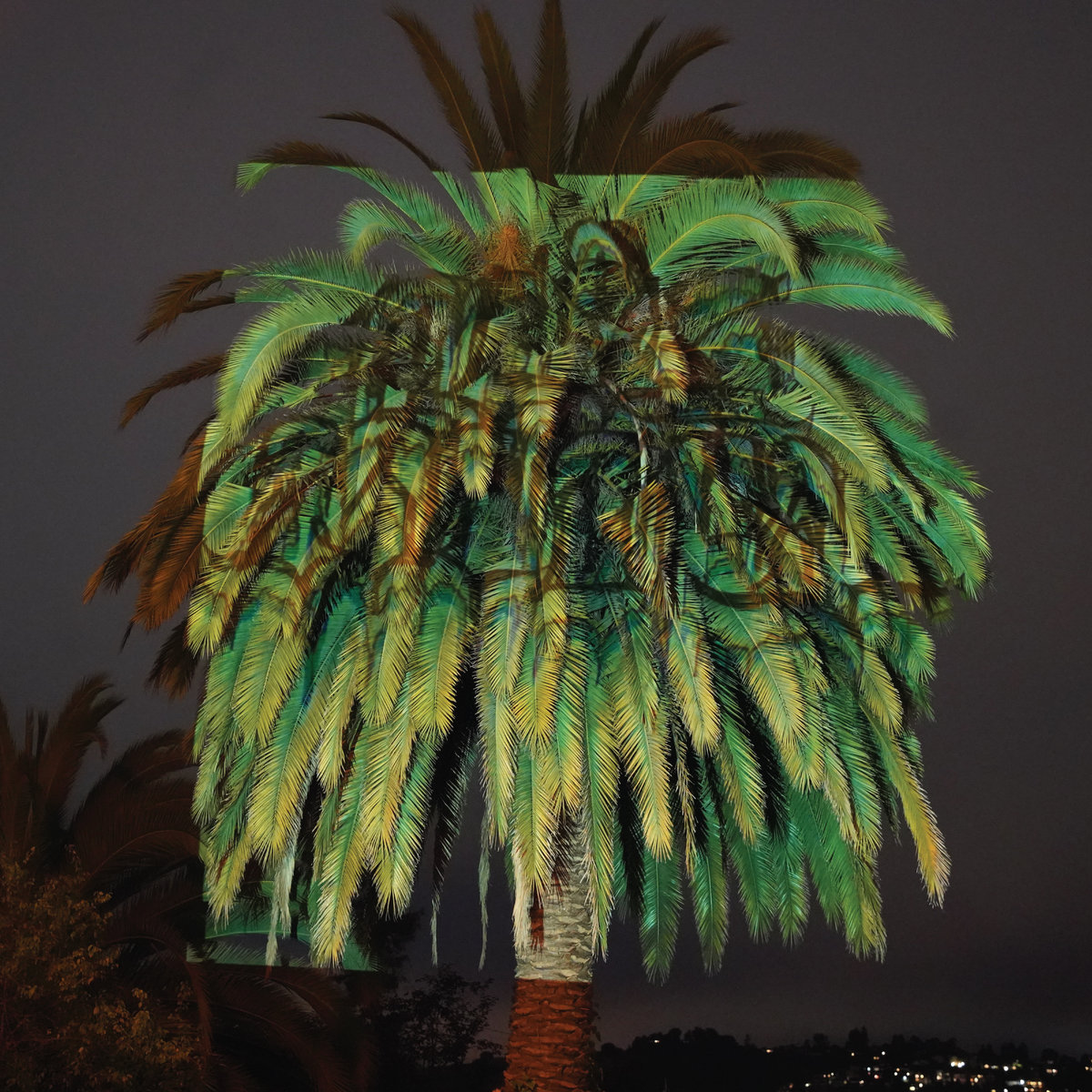
Is this the final part of ‘Acid Escape’?
Ross: No!
Zachary James: Not at all!
Do you discover new aspects of your songs developing in front of an audience?
Ross: Every show is different … And because the music is improvised sometimes something will emerge from a live set that we bring back a rough idea of it in the studio.
Zachary James: We are improvisers. Though I use an old MIDI sequencer with simple sequences, I am still able to modulate, transform and invent at whim. Every song is re-realized.
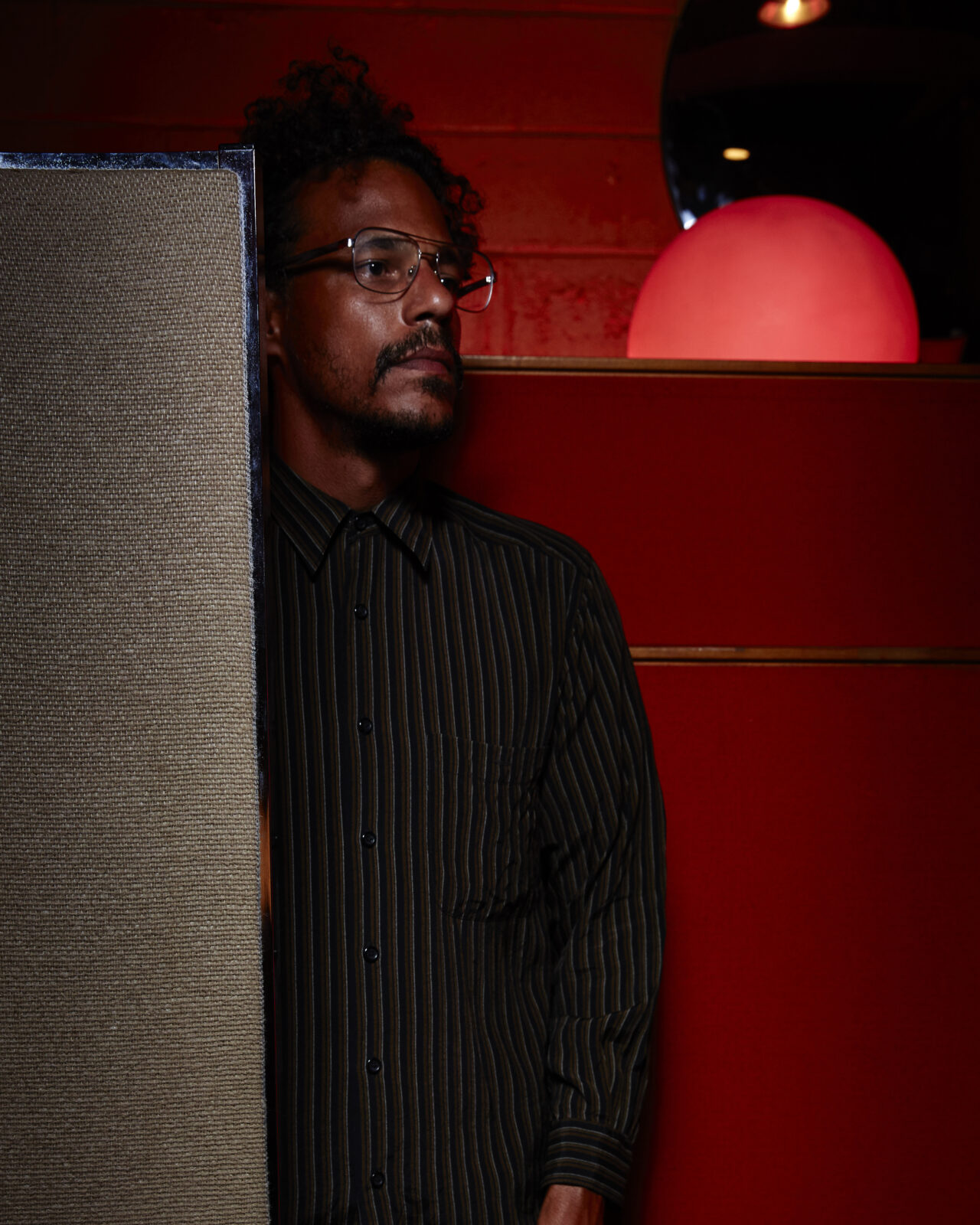
“Free flowing sonic journey”
How do you usually approach music making?
Ross: Seems to always change. My last band Mwahaha was based more in songs often with vocals, often with many layers of sound and many tracks incorporated to create walls of sound often using the studio as an instrument where as with Watkins / Peacock it was a much more free flowing sonic journey and much more minimal.
Zachary James: I listen and feel my way through. I have musical leanings and aesthetics. Living in the lower bottoms of Oakland I hear the local/regional sounds and they are influential. I am also interested in temporality. How sound can take one on a journey. Reggae is also very influential. I love minimalism. I make harmonic sequences, drum patterns and then dub.
What are some of the most important players that influenced your own style and what in particular did they employ in their playing that you liked?
Ross: Brian Eno, Aphex Twin, Miles Davis, Can, William Onyeabor, New Order.
Zachary James: Lee Scratch Perry, Linton Kwesi Johnston, drum and bass, friends.
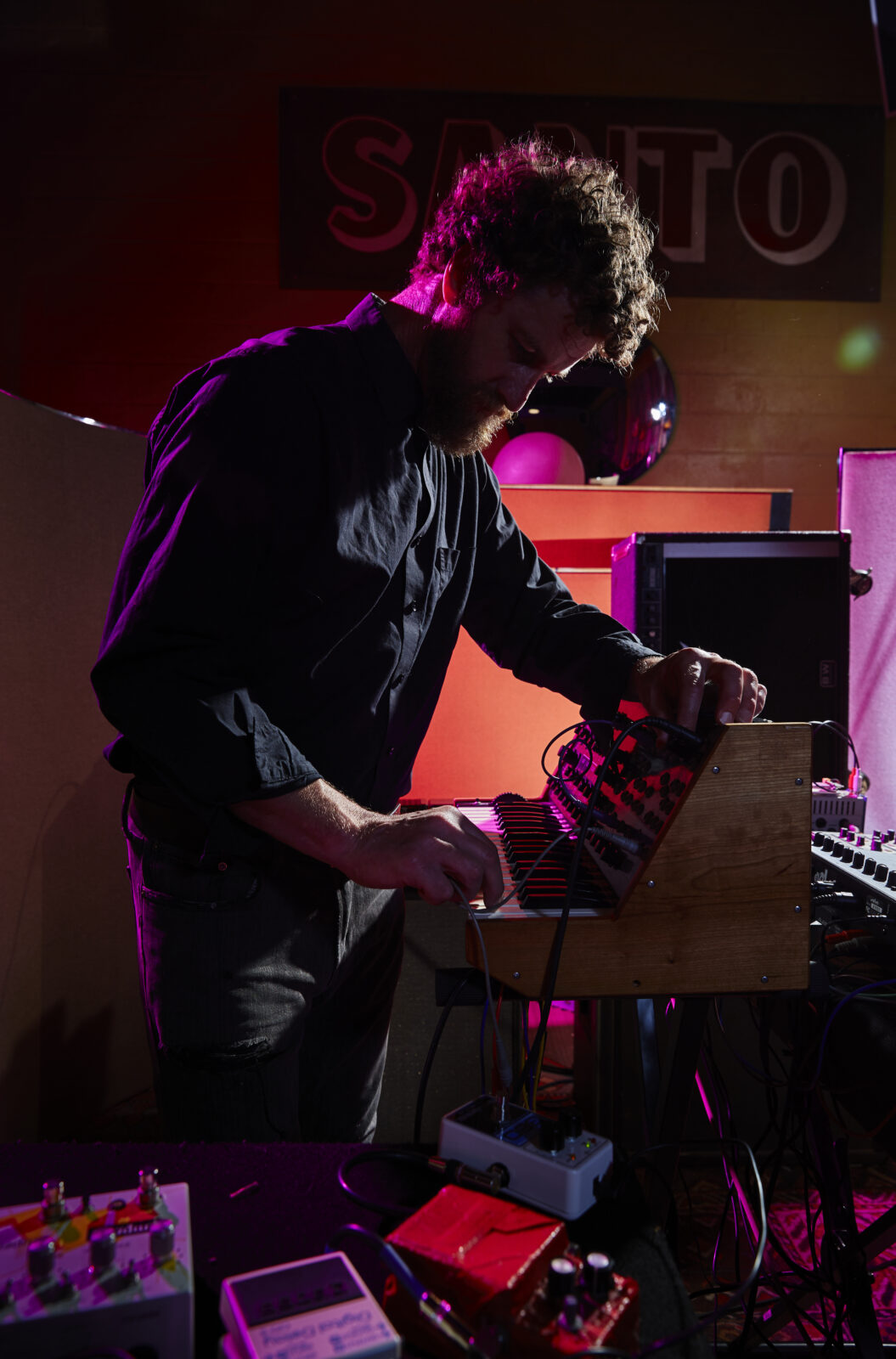
What else currently occupies your life?
Zachary James: Composition in general. Cooking, exploring, dominos.
Ross: Working on new songs, painting and illustrating, rebuilding an old house from 1875.
Let’s end this interview with some of your favourite albums. Have you found something new lately you would like to recommend to our readers?
Ross: That’s a hard one. So many great ones … Been listening to a lot of cool Kool Keith’s Dr. Octagon … And Wire in particular just jumping around from song to song….and then Beak> the album is called ‘>>>’.
Zachary James: Do your best, never say can’t and love one another.
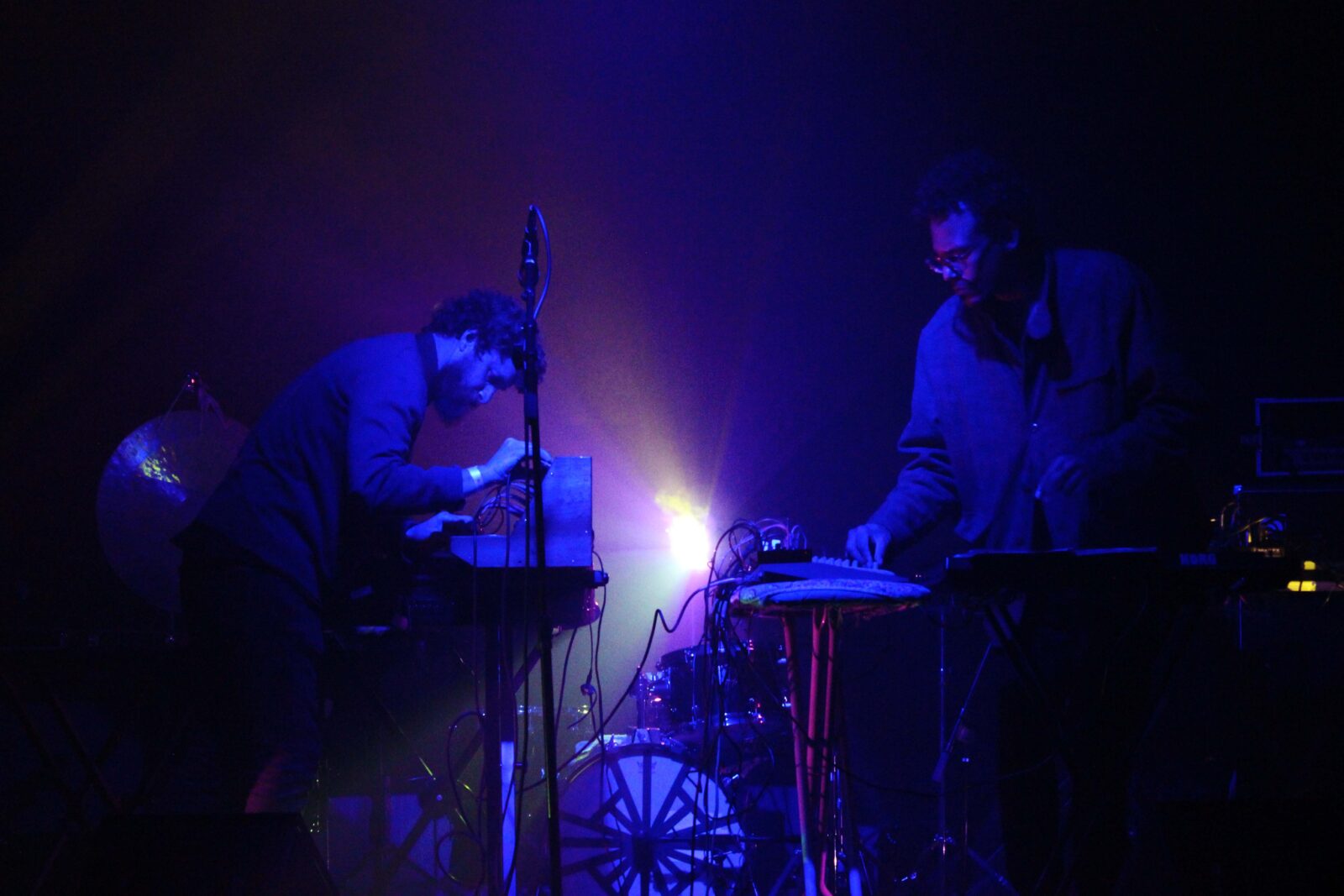
Thank you. Last word is yours.
The last word is one of my favorite drinks! Tastes like weathered green leather.
Klemem Breznikar
Headline photo: Paulo Placencia
Watkins / Peacock Facebook / Bandcamp
Ross Peacock Instagram / Twitter
Zachary James Watkins Official Website / Facebook / Instagram / Twitter / Bandcamp
Mwahaha Official Website / Facebook / Twitter / YouTube / Soundcloud
Freaks Records Official Website / Instagram / SoundCloud / YouTube

